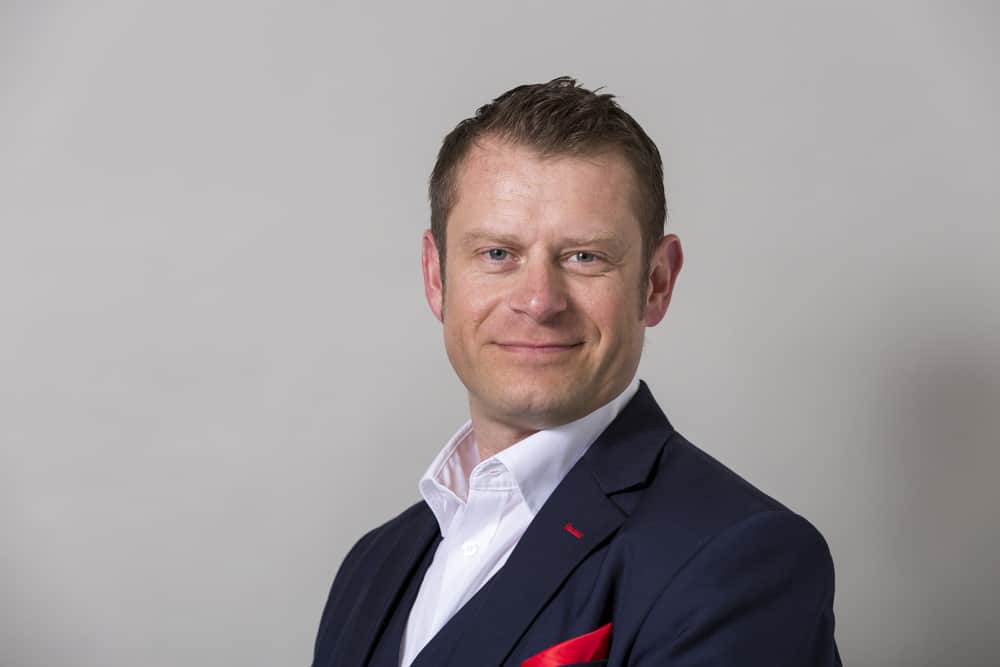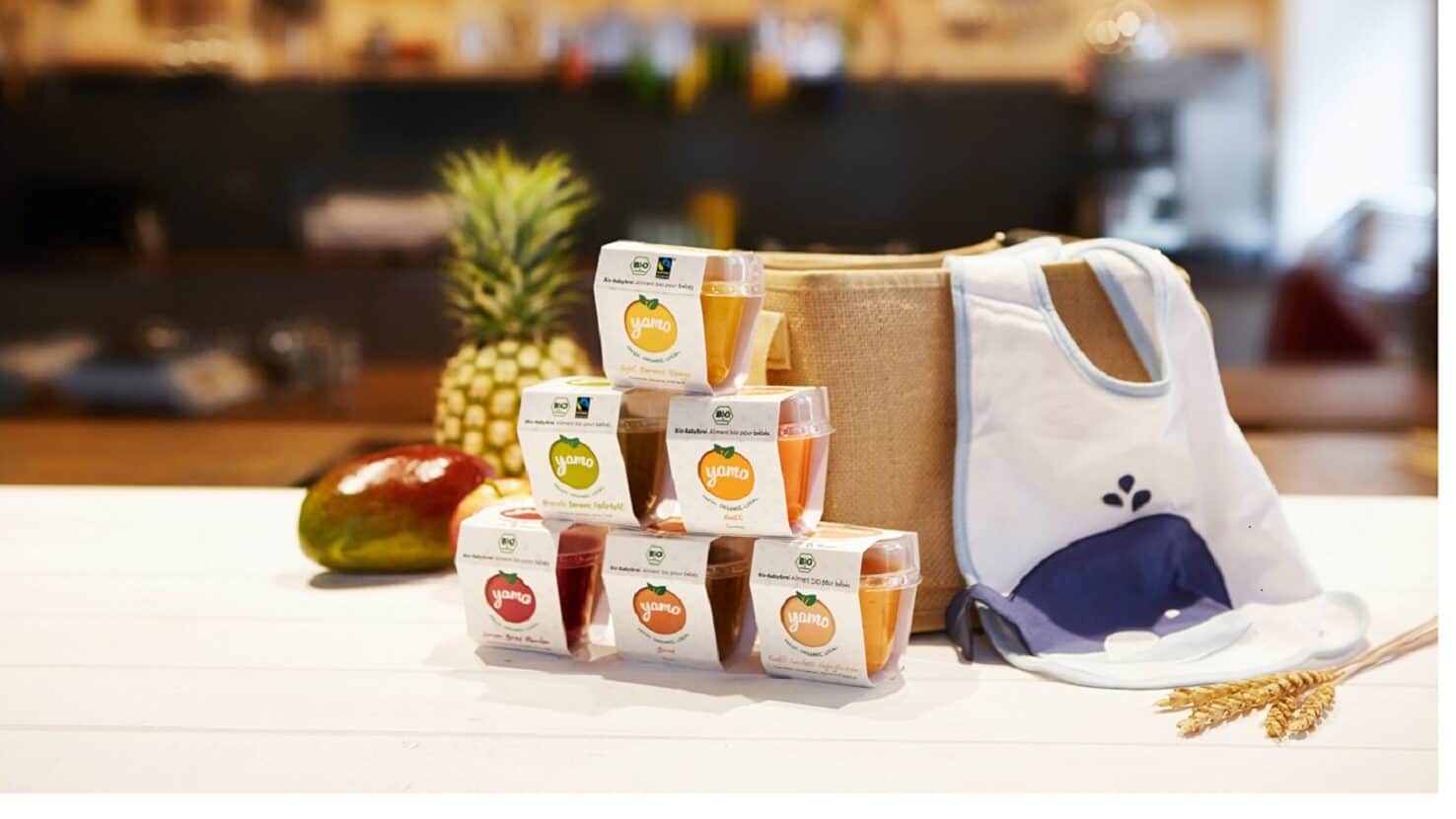Philippe Tramoy from Seventure Partners talks about deep tech startups in France, Seventure’s co-investments with Verve Ventures and why thinking internationally from day one is important for French startups.

Partner, Seventure Partners
Philippe Tramoy joined Seventure Partners in November 2013. He is in charge of Quadrivium 1 Seed Fund investments in the Life Sciences sector and is a board member of several startups, including Scipio Bioscience and Millidrop. Before joining Seventure, Philippe acquired more than 15 years of experience as an entrepreneur and business developer for startups and large companies. Philippe has a Master in Immunology and Molecular Biology from Ecole normale supérieure de Lyon, a Master in Finance from Sorbonne’s business school IAE and a Master in Marketing from HEC Paris.
Seventure Partners, based in Paris, is a leading venture capital firm with EUR 850 million assets under management. Seventure invests in digital technologies in France and Germany, and life sciences across Europe and North America. Seventure is a subsidiary of Natixis Investment Managers, which belongs to France’s second-largest banking group BPCE.
You have a background in biochemistry & immunology. How did you enter the venture capital industry?
I studied biochemistry and immunology because I wanted to discover new things and work on things that have an impact. I did research on a gene linked to leukemia and programmed cell death, and initially wanted to pursue a Ph.D. on this topic, but the lab wasn’t too excited about this. So, I decided to switch and attended a business school instead. Joining a company that developed and produced active pharmaceutical ingredients (API) as a business developer gave me the opportunity to travel across Europe and visit hundreds of biotech and biopharma companies. Later, I founded a market and business intelligence company with offices in France, Switzerland and Israel. We worked mainly for life science companies, doing market research, business development and strategy consulting. More and more, I also got involved in fundraising. At one point, I got a call from Isabelle de Cremoux, who later became the CEO of Seventure. She told me about the project of a Seed fund that would invest in spin-offs from universities. “That’s very risky”, I thought, and of course I said yes to joining the fund.
What are typical companies the fund invests in?
It invests in digital and life sciences companies. In life sciences, which is my favorite field, we invest early, in the pre-Seed or Seed stage, when companies have a proof of concept validating their approach, sometimes even earlier. What we are looking for is disruptive innovation protected by strong intellectual property. Companies we often call “deeptech”. We work closely with top French academic and university institutions like the Sorbonne, Paris Sciences et Lettres, Institut Curie and ESPCI.
How has the French startup ecosystem changed in the past decade?
The French startup ecosystem has developed a lot and is now on a whole different level. Several factors have contributed to this evolution. The availability of capital has increased dramatically, thanks to the impulse from BPI France and the European Investment Bank. There are a lot more experienced investors around now, with former entrepreneurs working for venture funds such as Marc Le Bozec (Fiancière Arbevel) and Marc Simoncini (Daphni). They help a new generation of entrepreneurs grow faster and avoid mistakes. Another factor is that the technology transfer offices of key universities have been professionalized all across France. In the labs where innovation is created, I also see a new generation of scientists that are very pragmatic and eager to start new companies and to bring their inventions to the market. This change of mindset, that you need to move fast and think big, is very palpable in France right now, but it hasn’t been the case in the past.
How much did the state-sponsored “La French Tech” initiative contribute to this mindset change?
What I described are changes that are happening on the ground. French Tech is a means of communicating this dynamic to the world outside. It is working, since foreign investments in French deep tech companies are on the rise. The reason why this label has been successful is that it has become a rallying point for the different actors in the startup ecosystem, it has brought together entrepreneurs, investors and policymakers. It has also carried the message that France has exciting tech firms to the wider world. But it’s not the only initiative, there are others like the i-PhD competition that aims to double the number of deep tech startups in France, which is backed by the Ministry of Higher Education, Research and Innovation. I’m on the jury of the competition, and even if it’s only in its second year, the impact is already being felt, as it creates momentum and helps people start new companies based on world-class research.
Let’s talk about concrete examples. Verve Ventures and Seventure have co-invested in the past, one example is Scipio Bioscience, where you’re also a board member. When did you first learn of this company?
Stuart Edelstein, an accomplished researcher and Professor, contacted me in January 2017 and told me that he had a project in mind, he was working on a patent. When he explained the idea to me, which uses a gel instead of a very expensive machine (microfluidics) to prepare samples for single-cell genomics, I found the approach very interesting and clearly disruptive. I told him that I would help to set up a company and raise funds. It was, obviously, a very early time to invest, and there aren’t many VCs that would consider investing in what is just an idea of a patent. But I was very happy that High-Tech Gründerfonds from Germany came to invest as well. There aren’t many investors that back deep-tech ventures in life science, and I’m convinced that in France, we need to try to bring in international investors and networks like Verve Ventures as early as possible.
Why is that?
You cannot build a successful life science company without an international mindset. The key players in lifescicences are distributed all around the world, and startups need to assemble international teams and an international investor base from the start, as it will help them later on. In this regard, I admire that Verve is building such a pan-European network of investors and companies. But it’s not just about the investor base, science would profit from cross-fertilization too. Imagine if it was more common for teams from Scandinavia, Germany, France and other countries working together to build a world-class company.
You’re also a board member of Millidrop. What convinced you to invest in this company?
I can share an anecdote from the time I was doing market research that will illustrate why I think that Millidrop’s technology will have an incredible impact. I did a market survey on microalgae, which are algae that are so small you can’t see them with the naked eye. A few of these species are used to industrially produce medical products and ingredients for food and cosmetics. I remember that one investor spent about few million Euros to build a few bioreactors to analyze and produce such microalgae. As I said, we currently use only very few species but according to estimates, there are hundreds of thousands of them, most of which haven’t even yet been described. We are, as humans, surrounded by microorganisms we don’t understand. Yes, we have genomics as a tool to analyze a single microorganism, but we lack insight into how they interact, grow and behave together. Technically speaking, we need better tools for phenotyping. There are some tools, but they’re so expensive that they’re only available to a small elite of researchers. Most of them, like I did a long time ago, have to work with petri dishes, which is a painfully slow and cumbersome way of doing things. What Millidrop makes possible is to analyze thousands of samples at the same time, in a machine that fits easy on your desktop. This machine will democratize access to microorganism research and eventually enable incredible discoveries.
Written by
WITH US, YOU CANCO-INVEST IN DEEP TECH STARTUPS

Verve's investor network
With annual investments of EUR 60-70 mio, we belong to the top 10% most active startup investors in Europe. We therefore get you into competitive financing rounds alongside other world-class venture capital funds.
We empower you to build your individual portfolio.
More News
05.02.2021
Getting access to the best startup investment opportunities
As the returns of startup investments are predominantly determined by a few rare successes, getting access to the best opportunities is quintessential. This is more difficult than it sounds.
11.01.2021
Building a diversified startup portfolio: why and how
Venture capital is a risky asset class because unlike in other asset classes, the major part of the expected returns come from a handful of investments. But there is a way to mitigate this hit-or-miss problem: Instead of trying to foresee the future and bet big on winners, investors should build a broad portfolio of investments.
09.07.2020
How food startup yamo found
the right formula
Having a yummy product is always a good starting point. And if it fits well with the megatrend of healthy living, that’s even better. But a key element to the success of a brand is distribution. The story of food startup yamo, which just raised EUR 10.1 million, offers some valuable lessons.
Startups,Innovation andVenture Capital
Sign up to receive our weekly newsletter and learn about investing in technologies that are changing the world.




